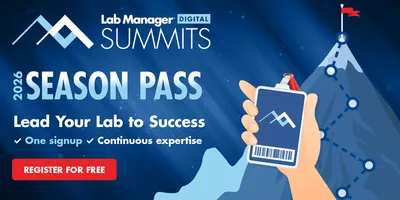On March 6, 2025, Lab Manager’s Management Matters: Women Leaders in Science webinar brought together industry leaders to address critical challenges and share empowering strategies for women in STEM leadership. Moderated by Scott Hanton, editorial director at Lab Manager, the event featured Linda Williams, laboratory manager of analytical services at Santee Cooper, and Laura Severs, clinical director at Washington University School of Medicine.
Timed just ahead of International Women’s Day on March 8, the discussion focused on tangible strategies for building confidence, asserting credibility in traditionally male-dominated spaces, fostering inclusive cultures, and effectively navigating shifting attitudes toward diversity, equity, and inclusion (DEI). Through candid stories, practical advice, and actionable insights, Williams and Severs emphasized the power of resilience, mentorship, and self-advocacy.
Here are the key takeaways from the webinar, offering practical guidance and inspiration for empowering current and future generations of women leaders in STEM:
Essential leadership qualities for women in science
“Leadership relies on universal qualities like emotional intelligence, self-awareness, and confidence.”
The discussion surrounding leadership qualities for women in science highlighted the power of empathy, resilience, and tenacity. Severs made a powerful point: women don’t need skills different from men, noting leadership relies on universal qualities like emotional intelligence, self-awareness, and confidence. “Being a good leader transcends,” Severs emphasized. Williams agreed, underscoring empathy and persistence: “You have to be able to put yourself in their shoes,” and advised, “Don’t stop at the first ‘no.’ Keep trying.” Both panelists stressed the importance of resilience, especially during adversity.
Establishing credibility and authority in male-dominated environments
Building credibility and authority in male-dominated environments requires preparation and self-confidence. Williams emphasized the importance of being ready for tough questions, saying, “The more self-confidence you have, the more people will see that you know what you’re talking about.” She also highlighted the need to assert leadership and have your voice heard. Severs agreed, adding that confidence starts with how women talk to themselves. “Reframe negative thoughts into positive ones,” she advised, adding, “We take up space, we're here, we're smart, and we're tenacious—we do deserve to talk about ourselves in that way.” Severs also noted that women in traditionally male spaces often need to be more prepared due to implicit bias.
Facing challenges as female leaders
Female leaders in science face challenges that often stem from gender biases. Severs recounted an experience early in her career: “As I started speaking, one of the senior leaders turned his chair around and put his back to me.” Despite presenting solid data, she was dismissed for being young and female. Severs overcame this by remaining confident in her message. Though fortunate not to face such blatant discrimination, Williams has experienced subtle biases. “I feel like [vendors] tend to walk past me . . . like they’re looking for someone else,” she said. To combat this, she proactively greets vendors and asserts her role as the lab manager.
Measuring success in fostering change for women
Measuring success in fostering change for women in STEM leadership involves visible representation shifts and the impact on organizational culture. Williams sees progress in women filling roles traditionally held by men. “It’s a huge accomplishment,” she said, noting how women now confidently speak in spaces once dominated by men. Severs highlighted the increasing number of women in leadership positions, particularly in her department. She also measures success by team engagement and retention, emphasizing the importance of leaders maintaining strong, supportive teams.
Navigating the anti-DEI landscape
“Diversity is a fact. Inclusion is a choice. Equity is a responsibility.”
As DEI initiatives face pushback, women in STEM must adapt. Severs asserted, “If a company no longer values these programs, I’ll find one that aligns with my beliefs.” She highlighted the importance of aligning with organizations that share personal values. Williams agreed, noting, “If the environment doesn’t support your beliefs, it’s not the right fit.” Both emphasized the need for creative solutions to maintain support, even in an anti-DEI era. “Diversity is a fact. Inclusion is a choice. Equity is a responsibility,” Severs concluded, underscoring the lasting importance of these principles in leadership.
Creating emotional, physical, and psychological safety
Both leaders emphasized the importance of trust and transparency in fostering safe, supportive environments. Severs shared, “I believe in ‘management by walking around’—being visible and accessible to my team . . . This helps them see that I’m genuinely invested in getting to know them and their needs.” She also stressed the importance of holding people accountable for unsafe behavior and maintaining a culture of respect. Williams added, “Building trust is key. I make sure my team knows I’m honest and transparent. I share my thoughts and keep them in the loop, even if it hasn’t happened yet.” Both prioritize creating spaces where people feel valued and heard.
Overcoming hesitation to advocate for oneself
Williams emphasized the importance of self-advocacy: “If you don’t advocate for yourself, you may not have somebody else that will. Start with yourself and build a support system.” She encourages women to push through self-doubt and fear of rejection: “Go for it. Don’t be scared. It’s a long-term career-building trait.” Severs suggested reflecting on the root of your fear: “Is it fear of retribution or looking unqualified?” She also advocates for leaning on a supportive network: “Having a network of women to share experiences and practice with is crucial to building confidence and preparedness.”
The Women Leaders in Science webinar provided invaluable insights into the challenges and opportunities women in STEM leadership face. From strategies for building confidence to fostering inclusivity, the discussion emphasized the critical role of empowerment and resilience. As Williams and Severs shared their experiences, they underscored the importance of self-advocacy, trust, and the need for supportive networks. To watch the webinar on-demand for free, click here.















